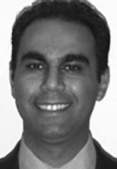Background:
Each year, millions of children and adults live without the prevention and treatment that would allow them to maintain good oral health. The implications of untreated dental disease are not just cosmetic; they are serious and can be permanent. Oral and craniofacial diseases and their treatment place a burden on society in the form of lost days and productivity. Employed adults lose more than 164 million hours of work each year due to dental disease or treatment. Significant tooth decay, pain, or infection can inhibit learning, speech, and eating. This can lead to problems in school, a negative self-image, poor nutrition, and systemic disease and disability. Nationally, more than 51 million school hours are lost each year due to dental-related illnesses. Untreated dental disease can also create changes in a person’s appearance that negatively impact his/her employability. There are underserved populations that experience more tooth decay and endentulisim than those who are better off. According to the Centers of Disease Control, African Americans and Latinos have poorer oral health than their white counterparts with higher rates of untreated dental disease.
Pacoima, California is a suburban section of Los Angeles that lies in the north east of the San Fernando Valley that is home to about 97,300 people. The Community is predominantly Latino/Hispanic with the majority identifying themselves as Mexican/Mexican American/Chicano. According to the 2000 U.S. census, the community of Pacoima is one of the most economically disadvantaged communities of Los Angeles. The LA County Board of Supervisors has recognized this area medically underserved with 40% of the population lacking health insurance compared to the state average of 15% uninsured. The federal government recognizes this community as a Dental Health Professional Shortage Area (DHPSA), having less than 1 dentist for every 5,000 people. The objective of this study is to determine the unmet dental need in the community of Pacoima, California.
Methods:
Entire city mapped (14,231 addresses)
Survey of 1,028 random households
Survey data analyzed using Generalized Estimating Equations (GEE Regression) to account for longitudinal household survey data.
Results:
59% Respondents stated getting dental care is a problem in this community. However 87% were satisfied with dental care in the community.
Perception of Oral Health and availability of care in this community was disproportionately low compared to CDC clinical data.
Perception of unmet need:
Women are 1.78 times more likely to report unmet dental need than men
Those without dental insurance are 3.59 times more likely to report an unmet dental need
Households without bank accounts are 1.57 times more likely to report an unmet dental need.
Conclusion:
More studies need to be done on this community’s perceptions of Oral Health. Work must be done to increase the oral health literacy of this community including the benefits of proactive care rather than reactive care. As a majority of the residents are unaware of the services available to them, information on how to access and utilize available services would be of benefit. The workforce in this community needs to be increased, either by increasing the number of practicing dentists or the expanded use of dental auxiliaries, quite possibly both.
Preceptor:
John Yamamoto, DDS, MPH & Marvin Marcus DDS, MPH
UCLA School of Dentistry Division of Public Health and Community Dentistry


